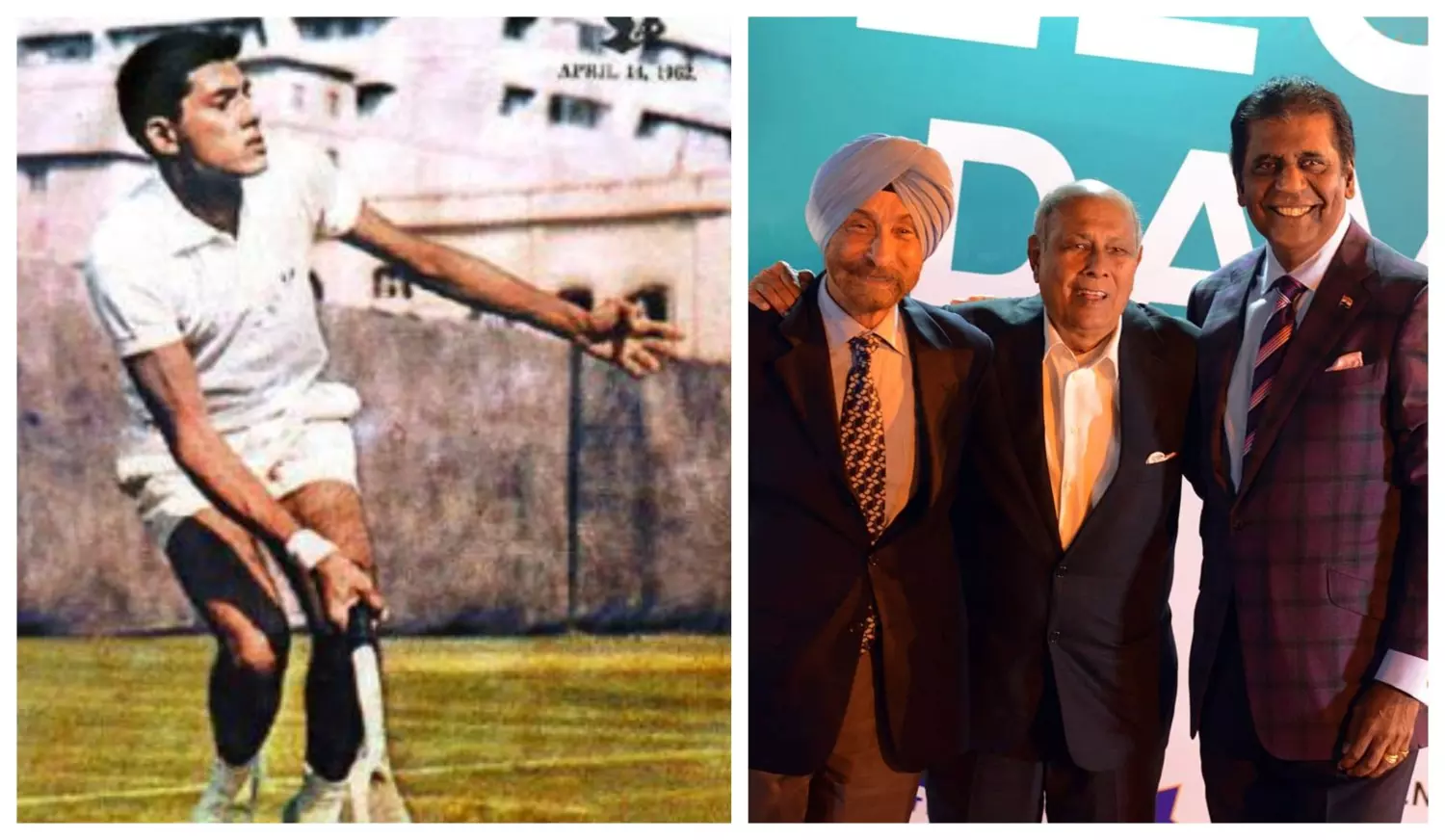Tennis
Indian tennis legend who played mischief with Gandhi - Jaidip Mukerjea
Jaidip Mukerjea is well known as a tennis legend from a bygone era. But he is also one of the few people who had the courage to play a prank on Mahatma Gandhi.

Jaidip Mukerjea, the legendary Indian tennis player, had a fascinating life filled with memorable experiences and achievements on and off the tennis court.
Growing up as the great grandson of freedom fighter Deshbandhu Chittaranjan Das, he had a close connection to India's history. Jaidip's maternal great grandmother, Basanti Devi, was actively involved in politics after her husband's passing.
One of Jaidip's cherished childhood memories was when Mahatma Gandhi visited his great grandmother's house in Calcutta. Despite being very young at the time, Jaidip vividly remembered his mother telling him about the important visitor who was a big man.
Amusingly, upon seeing Gandhi, Jaidip humorously remarked to his mother that he thought someone much bigger was coming, considering Gandhi's smaller physique.
Overhearing their conversation, Gandhi playfully responded, "Hain, mein chota aadmi hu," meaning, "Yes, I am a small man."
In another mischievous incident, during Gandhi's visit, Jaidip decided to play a prank by hiding Gandhi's sandals. As everyone began to worry and search for the missing footwear, Jaidip eventually returned them, leaving everyone relieved and amused.
Indeed, only a handful of individuals in the world possessed the courage to play a prank on Gandhi.
'Ramanathan Krishnan best Indian tennis player of all time'
During a conversation with Dr. Sandip Chatterjee at the Bengal Club, Jaidip reminisced about his life, childhood, friends, and his illustrious career on the tennis court. Although Jaidip initially excelled in sports like hockey, cricket, and rugby, a collarbone injury while playing rugby forced him to give up contact sports.
Reluctantly, he turned to tennis and began playing at the South Club, where his talent quickly emerged.
Jaidip's tennis journey led him to the Wimbledon junior final, the Davis Cup final, and several hard-fought battles on the Grand Slam stage. Tennis brought him a name, fame, a devoted fan base, and friendships worldwide.
Ramanathan Krishnan
He fondly spoke about the heroics of Ramanathan Krishnan and Premjit Lal, emphasizing his belief that Krishnan is the best tennis player India has ever produced.
Amidst sharing funny stories and incidents from their playing days, Jaidip highlighted the camaraderie that existed among players during his era, which he felt was stronger than in the present. However, he acknowledged that contemporary players are now stronger, fitter and power tennis has replaced the artistry that was prevalent during his time.
Reflecting on the state of tennis in India, Jaidip expressed his disappointment with the South Club, which, despite its glorious history of producing 20 Davis Cup players, has diminished over time. When asked about current players in India who could make a mark at the global level, Jaidip regretfully stated that there is currently no one among them who stands out.
It's interesting to note that former Bengal cricketer Joydeep Mukherjee was named after Jaidip Mukerjea, the Indian tennis legend.
He also discussed his autobiography 'Crosscourt,' which explored all these fascinating aspects and much more - a highly recommended read for those looking to get a peek into how the sport used to be.
Given that Jaidip played tennis in an era when media wasn't as pervasive as it is today, these stories might not be widely available on social media or the internet. Therefore, the captivating tales of that bygone tennis era can only be passed down to future generations through the art of storytelling. There's no better way to experience these incredible stories than by hearing them directly from the man himself in this autobiography.
